
JOURNAL OF FOOD PROTECTION
Scope & Guideline
Advancing food safety through rigorous research.
Introduction
Aims and Scopes
- Food Safety and Microbiology:
The journal emphasizes research related to foodborne pathogens, their detection, survival, and control strategies, particularly focusing on organisms like Salmonella, Escherichia coli, and Listeria monocytogenes. - Food Processing and Preservation Techniques:
Research is presented on various food processing methods aimed at enhancing food safety, including thermal processing, high-pressure treatments, and the use of natural preservatives. - Risk Assessment and Management:
The journal includes studies that evaluate risks associated with foodborne illnesses, including quantitative risk assessments that help inform policy and regulatory decisions. - Food Quality and Contaminants:
It covers the assessment of chemical contaminants, including pesticide residues, heavy metals, and mycotoxins, and their implications for food safety and public health. - Consumer Behavior and Food Safety Practices:
Research on consumer knowledge, attitudes, and practices regarding food safety is also featured, highlighting the importance of education and communication in preventing foodborne illnesses. - Innovative Detection Techniques:
The journal promotes the development and validation of novel methods for detecting foodborne pathogens and contaminants, including molecular and biochemical techniques.
Trending and Emerging
- Antimicrobial Resistance in Foodborne Pathogens:
There is a growing emphasis on the study of antimicrobial resistance among foodborne pathogens, reflecting global health concerns and the need for effective management strategies. - Impact of Climate Change on Food Safety:
Research exploring the implications of climate change on food safety, including shifts in pathogen prevalence and food production practices, is increasingly prominent. - Food Safety in Novel Food Products:
Emerging themes include the safety assessment of novel food products, such as plant-based alternatives and insect-based foods, which require new safety protocols and research. - Technological Innovations in Food Safety:
The journal is seeing an increase in studies on technological advancements, including the use of biosensors, machine learning, and big data analytics for food safety applications. - Sustainable Food Practices:
Research focusing on sustainable agricultural practices and their impact on food safety is trending, highlighting the intersection of food safety and environmental sustainability.
Declining or Waning
- Traditional Food Safety Methods:
Research focusing solely on conventional food safety methods is less prevalent, as there is a noticeable shift towards innovative and advanced detection and prevention techniques. - General Food Microbiology Studies:
While food microbiology remains a core area, studies that do not focus on specific pathogens or practical applications are becoming less frequent, indicating a trend towards more targeted research. - Food Safety Regulations without Empirical Support:
There is a decline in papers that discuss food safety regulations or policies without providing empirical data or research to support their claims, reflecting a demand for evidence-based approaches. - Broad Consumer Studies:
Research that broadly surveys consumer behavior without a specific focus on actionable insights or practical applications for food safety improvement is becoming less common.
Similar Journals
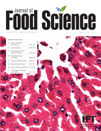
JOURNAL OF FOOD SCIENCE
Empowering Food Professionals with Cutting-Edge ResearchJOURNAL OF FOOD SCIENCE, published by Wiley, is a premier journal dedicated to advancing the field of food science, bridging the gap between fundamental research and practical application. With an impressive impact factor reflecting its authoritative status, the journal is ranked in the Q1 quartile for Food Science in 2023 and boasts a Scopus ranking of #71 out of 389, placing it in the 81st percentile within Agricultural and Biological Sciences. First launched in 1936, the journal continues to serve as an essential platform for researchers, professionals, and students to disseminate innovative studies and reviews that address critical issues in food quality, safety, and technology. While not currently offering open access, its rigorous peer-review process ensures the dissemination of high-quality and impactful research. Researchers engaged in the vital disciplines of food science will find this journal indispensable for keeping abreast of cutting-edge developments in the field.
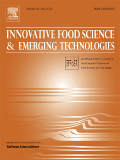
Innovative Food Science & Emerging Technologies
Transforming Food Science Through Cutting-Edge ResearchWelcome to Innovative Food Science & Emerging Technologies, a premier journal published by ELSEVIER SCI LTD that serves as a vital platform for researchers and professionals dedicated to the rapidly evolving field of food science. With an impressive Impact Factor and a position in the Q1 category across notable disciplines including Chemistry, Food Science, and Industrial and Manufacturing Engineering, this journal ranks among the top tier within its fields, evidenced by its Scopus ranking of 20th out of 389 in Food Science, placing it in the 94th percentile. Our readers can expect to encounter cutting-edge research and innovative applications from 2000 through 2024, exploring critical themes that contribute to advancements in food technology, manufacturing processes, and sustainability practices. Although currently not an Open Access publication, we maintain a commitment to disseminating high-quality scholarship that enhances knowledge and encourages collaboration among a diverse audience. Join us in driving forward the forefront of food science research in the Netherlands and beyond.

Journal of Food Measurement and Characterization
Unlocking the Secrets of Food Quality and SafetyJournal of Food Measurement and Characterization, published by SPRINGER, is a pivotal resource for researchers and professionals in the fields of Chemical Engineering, Food Science, and Industrial and Manufacturing Engineering. With an ISSN of 2193-4126 and an E-ISSN of 2193-4134, this esteemed journal has carved its niche since its inception in 2012, continuing to contribute valuable insights until 2024. Ranking in the Q2 category across multiple disciplines, including Safety, Risk, Reliability, and Quality, it reflects a strong commitment to advancing knowledge and innovation within these critical areas. Although it operates under a subscription model, the journal provides an array of access options for institutions and researchers keen to explore novel methodologies and analyses in food measurement and characterization. The journal’s rigorous peer-review process ensures the dissemination of high-quality research, making it an essential platform for advancing the science of food and related industries.
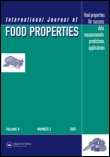
INTERNATIONAL JOURNAL OF FOOD PROPERTIES
Uncovering the science behind what we eat.INTERNATIONAL JOURNAL OF FOOD PROPERTIES, published by TAYLOR & FRANCIS INC, is a leading platform for disseminating high-quality research in the field of food science. With an ISSN of 1094-2912 and E-ISSN of 1532-2386, this journal has been committed to open access since 2018, ensuring that groundbreaking studies are readily available to global audiences. The journal has steadily gained recognition for its contribution to the discipline, achieving a Q2 ranking in Food Science and placing in the 68th percentile among its peers according to Scopus metrics. Covering a wide array of topics related to the properties and applications of food, it serves as a valuable resource for researchers, professionals, and students alike. With coverage extending from 1998 to 2024, the journal continually seeks to advance knowledge and foster innovation within the food science community, making it a pivotal publication for anyone serious about this vital field.
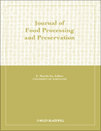
JOURNAL OF FOOD PROCESSING AND PRESERVATION
Pioneering Research for Sustainable Food PracticesJOURNAL OF FOOD PROCESSING AND PRESERVATION, published by Wiley-Hindawi, stands as a vital resource within the fields of Food Science, Chemical Engineering, and Chemistry. With an ISSN of 0145-8892 and an E-ISSN of 1745-4549, the journal has been a beacon of knowledge since its inception in 1977, continuing to provide valuable insights to the research community until 2024. Recognized for its quality, it holds a noteworthy Q2 ranking in 2023 across multiple categories, including Food Science and Chemical Engineering, indicating its influential contribution to the academic discourse. Although it offers no open access, the journal remains a crucial platform for disseminating groundbreaking research and innovative methodologies in food processing and preservation. Researchers, professionals, and students can significantly benefit from its comprehensive reviews, original research articles, and case studies, aimed at advancing knowledge and practices in food technology. By bridging the gap between theoretical advancements and practical applications, the JOURNAL OF FOOD PROCESSING AND PRESERVATION plays an essential role in addressing global food safety, sustainability, and quality challenges.
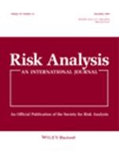
RISK ANALYSIS
Navigating the Complexities of Safety and RiskRISK ANALYSIS is a premier journal published by Wiley, focusing on the critical intersection of safety, risk, reliability, and quality within the fields of engineering and physiology. With a strong standing reflected in its Q1 category ranking in Safety, Risk, Reliability and Quality and Q2 in Physiology (medical), this journal is a vital resource for researchers, professionals, and students eager to stay informed on the latest methodologies, theories, and applications surrounding risk assessment and management. Since its inception in 1981, RISK ANALYSIS has been instrumental in shaping the discourse in its fields, garnering a robust reputation verified by its high rankings on Scopus, where it is positioned in the 85th percentile in Safety and the 77th percentile in Medicine. Though it does not currently offer Open Access options, the journal remains essential for those committed to advancing their understanding of risks associated with complex systems. For more insights, RISK ANALYSIS is available to readers throughout its converged years extending to 2024, solidifying its role as a foundational journal for impactful research.
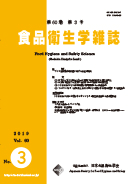
Food Hygiene and Safety Science
Elevating Hygiene Practices through ScienceFood Hygiene and Safety Science is a pivotal academic journal published in Japan by the esteemed FOOD HYGIENE & SAFETY. With its ISSN 0015-6426, this journal operates within the broad domains of food science, public health, and medicine, strategically addressing the critical issues surrounding food hygiene and safety. With a notable history spanning from 1960 to 2024, it has become an essential resource in these fields, currently holding a Q3 category ranking in Food Science as well as in Medicine (Miscellaneous) and Public Health, Environmental and Occupational Health, according to the 2023 evaluations. Although access options may vary, the journal is committed to disseminating vital research findings to enhance food safety practices on a global scale. With its focus on advancing knowledge and sharing innovative practices, Food Hygiene and Safety Science serves as a vital platform for researchers, professionals, and students dedicated to improving food safety standards and public health outcomes.
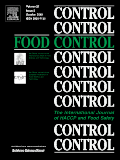
FOOD CONTROL
Advancing food safety through innovative research.FOOD CONTROL, published by Elsevier Science Ltd, stands at the forefront of research in the fields of Food Science and Biotechnology, holding a prestigious Q1 ranking in both categories as of 2023. With an impact factor reflecting its influential role in the scientific community, this journal is dedicated to advancing the understanding and control of food safety, quality, and regulations from 1990 to its projected convergence in 2025. Food Control provides a platform for innovative research and critical reviews that address the pressing global challenges in food safety, sustainability, and technological advancements in the industry. Researchers, professionals, and students are encouraged to engage with its content, fostering a deeper understanding of the intersection between food science and biotechnological advancements, all while benefiting from the extensive reach of its Scopus rankings, which place it in the top 5th percentile of its respective fields.

ITALIAN JOURNAL OF FOOD SCIENCE
Fostering Collaboration in Food ResearchITALIAN JOURNAL OF FOOD SCIENCE is a distinguished open-access publication dedicated to advancing knowledge in the field of food science, catering to a global audience of researchers, professionals, and students. Published by Codon Publications in Singapore, this journal, operating under the ISSN 1120-1770 and E-ISSN 2239-5687, has been a vital platform for scholarly discourse since its inception in 1996, converging towards a comprehensive view of food science trends through 2024. With an impressive ranking in the third quartile (Q3) of the Food Science category and a Scopus rank of #151 out of 389, the journal plays a significant role in disseminating high-quality research, contributing to a richer understanding of food science within the agricultural and biological sciences. Since transitioning to open access in 2008, it has further expanded its reach, ensuring that innovative research is accessible to all, thereby fostering collaboration and knowledge exchange in this vital industry.
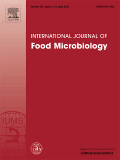
INTERNATIONAL JOURNAL OF FOOD MICROBIOLOGY
Innovating Solutions for Safer Food PracticesINTERNATIONAL JOURNAL OF FOOD MICROBIOLOGY is a leading journal in the field of food safety and microbiology, published by Elsevier. With an impressive impact factor and a distinguished position, it ranks in the top quartile for both Food Science and Medicine, as well as holding a strong presence in Microbiology and Safety, Risk, Reliability, and Quality categories. The journal provides a vital platform for researchers, professionals, and students to disseminate and discuss innovative research findings and applications that address the complexities of food microbiology. Operating from its headquarters in the Netherlands, this journal not only facilitates access to high-quality scholarly articles but also encourages the development of interdisciplinary approaches to tackle current challenges in food safety and public health. Since its inception in 1984, the journal has continually evolved, ensuring that it remains at the forefront of scientific inquiry, making it a crucial resource for anyone engaged in the food sciences.